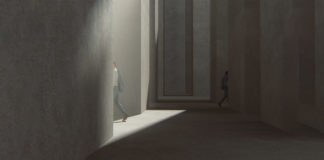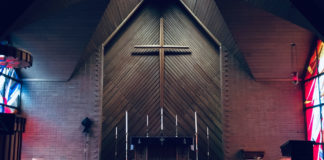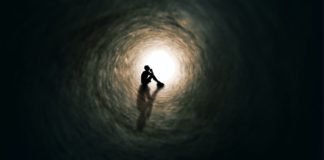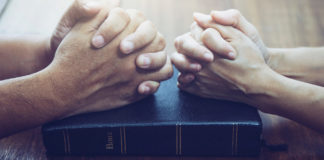Why did Jesus have to die for us?
Taken as a whole, this question sounds like a painful cry, springing forth from the depths of the human being, in the midst of the darkness of uncertainty and doubt. This question, however, consists of multiple sub-questions. We will address these essential questions that will open our minds to the light of the teachings of Him who holds all knowledge and truth.
What could console our terrible fear of death?
Along with the rising death toll due to coronavirus complications, a usually latent aspect of our fear becomes harder to ignore. Despite the fact that it is the only certainty we all share, realising that our own end is a reality we might need to confront sooner than we had thought leaves many of us fervently searching for consolation.
We are more than we can easily explain
Suppose I leave the window open then leave home. A stack of banknotes can be seen on the table through the open window. An individual walking down the street notices the opportunity, thinks for a while, but decides to move on. Why would a man who has the opportunity to steal decide not to?
The marks of (un)belief
I believe that doubt is a part of faith, not its opposite. It took me quite a few years to say this without feeling guilty. I needed to have many experiences before I could accept that questions are legitimate and not a sign of spiritual decay.
Post-atheism and the relativisation of relativism
The end of the last century created the perfect context for postmodernism to exercise its veto over all the ethical dilemmas of the day. As a result, today, as in vitro fertilisation, abortion, euthanasia or homosexual marriage enter the legislative agendas of more and more countries, we see political correctness taking precedence over religious morality.
COVID-19 and the dilemma of evil
It is right for you to look for what you are looking for, but it is not where you are looking for. In the land of death, you seek a happy life: it is not there. How can life be happy somewhere where there is no life? (St. Augustine, Confessions)
What Does the Bible Say About Contagious Diseases (like COVID-19)?
Since the outbreak of the corona virus pandemic, many people are asking faith-based questions. Is this a judgment of God on the human race? Is this a sign of the End? Does Bible prophecy speak about it? Even if people don’t believe in God or the Bible, they are wondering what their Christian neighbors are thinking about the matter.
When faith falters, and couples drift apart
Live the questions now. Perhaps you will then gradually, without noticing it, live along some distant day into the answer. – Rainer Maria Rilke
How God heals a marriage that is lost
Kent Hansen kindly agreed to talk to us about the most painful episode of his life, the loss of his wife. Beyond the sadness, it is a discussion rich in emotion and lessons for us all.
Don’t all religions lead to God?
It is convenient, but also superficial, to say that all religions lead to God. However, this attitude is pervasive, and usually lasts only until one has had a chance to see the difference the various religions make in people's lives.
The God of all | The divine vision on our differences
The first part of my life was marked by multiple barriers that placed me in a minority status.
Knowledge sharing in Christian communities
Whether we are cooking, repairing things, or solving life's problems, we are always learning from each other. However, when it comes to certain areas, including church life, the interchange of experiences is lacking. Communities often keep their ideas, and especially their mistakes, to themselves. Can we rediscover the deeply biblical nature of knowledge sharing?
Prodigal sons and abiding sons | How to help children stay close to God
“Children cannot live according to God’s ways if they do not know God’s Words.” This is a truth in which Christian parents can ground their efforts to help their children build their faith in God, in order to later avoid the path of prodigal sons.
I didn’t know that God cries too
In those times when grief accompanies us and we find ourselves alone in the middle of the night, does God shed tears with us?
COVID-19: Fake news, now and ever
Elisa Granato, one of the first people to be tested for a Covid-19 vaccine, died. The news rolled in the virtual media 6 times faster than other news.[1] Keep this number in mind. This is important because, as we learn from a study published in Science, fake news spreads on average 6 times faster than genuine news. And not only faster, but also...


























